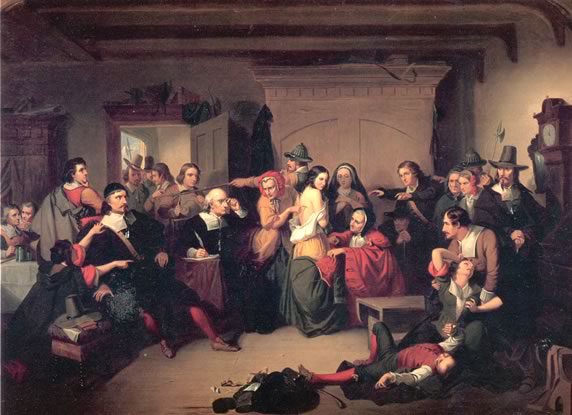At the Atlantic, Conor Friedersdorf asks “Is America Less Moralistic Now, or Has Its Code Just Changed?”
Friedersdorf argues that American attitudes have shifted when it comes to many things that “traditionalists” regard as immoral, such as “gay marriage or smoking marijuana or watching pornography.” He concludes, “insofar as traditionalists are losing ground, it’s often because what they regard as immoral strikes a majority as morally unobjectionable.”
The problem here is that I think Friedersdorf’s idea of what constitutes “moral issues” is too small, but also much larger than he lets on.
On the one hand, he fully accepts the stunted framework of “Values Voters” that restricts what counts as a “moral issue.” According to this framework, the question of whether or not the health insurance a worker earns should cover the cost of contraception is a matter of moral concern, but cutting $40 billion from SNAP is not.
Yet on the other hand, it’s impossible to understand the monstrous proposal to gut funding for SNAP without understanding how that is the product of American moralism. The true nature of this moralism shows itself more clearly when it comes to economic issues.
James Morone explained this many years ago in an insightful essay on “The Corrosive Politics of Virtue.” Morone’s examples of financial crimes from 2001 seem almost quaint compared to the examples we could supply today, but aside from that, this passage still seems relevant:
The celebration of virtue stops at the market’s edge. The lamentations about lost values are directed largely at poor people. There is scarcely a word about what the privileged owe their society. This gospel runs lightly over the corporal works of mercy or all that trouble in the temple between Jesus and the money changers. Today, the apostles of virtue offer almost no sermons on loyalty toward workers, obligations toward the poor, or the greed of some corporate officials.
Where are the moralizers when Fleet Finance gets caught in “predatory lending practices” (that means lying to the customers about their interest rates)? And Fleet, New England’s largest bank, managed to duck an even worse charge, “equity theft” (that’s stealing from the customers). On a still grander scale, the savings-and-loan fiasco involved plenty of moral meltdown along with economic miscalculation. Yet scarcely a word from the political pulpits. The wrath is reserved for bad kids and their moms, not bankers or CEOs.
Why? Partially because the values movement is about explaining popular anxiety. Criminal delinquents make an ominous, predatory other. More important, they fit neatly into a picture of American troubles that conservatives framed long ago: The lazy, self-indulgent, criminal poor are responsible for their own troubles, the growth of liberal welfare government, and the dwindling opportunities for the hard-working, moral us.
Inside this worldview, even the stingy contemporary welfare state is insupportable. Charity means tough love.
“Moralism” isn’t a list of social issues. Moralism is about drawing lines and assigning blame. It’s about separating the “deserving” from the “undeserving.” And, above all, it’s about identifying the immoral Other who can be blamed for all the ills of society. (This is what distinguishes moral-ism from simple morality. Morality is concerned with justice and fairness. Moralism is concerned with blame and punishment and self-congratulation.)

Here, again, is James Morone:
The effect of all this sermonizing is to construct an often shadowy, immoral “other.” These bad people explain why life is hard or why times are confusing or why America is not what it used to be. Some, like the fundamentalist preachers, name names with relish: homosexuals, abortionists, welfare mothers. Others try to pick more carefully. …
The political result is a great division: a virtuous us, a vicious them. “They” threaten us. “They” are ominous, cruel, and depraved. (I’m not making these words up.) … The outcry against sin leads, willy-nilly, to the fight against sinners. What we get is the logic of the witch-hunt. The moral framing of our social troubles — good us, evil them — permits leaders (and demagogues) to cash in with whatever enemy resonates among the people.
This, I think, explains what puzzles Conor Friedersdorf — the shift in public opinion on some “moral issues” but not on others. Gay marriage and reefer madness no longer provide “enemies” that resonate. The attempt of moralizers to portray same-sex couples or pot-smokers as the Other responsible for “why life is hard or why times are confusing or why America is not what it used to be” no longer seems convincing to most people. Moralizers get more bang for their buck by relying instead on the old standbys of “welfare queens,” “urban” hoods in hoodies, “illegal” foreigners, and “feminazi sluts.”
Morone’s framework also calls into question Friedersdorf’s attempted distinction between libertarians and social conservatives. The former, he says, don’t share the latter’s “moralistic” approach.
Hogwash. No one is more moralistic or more vindictively so than the Ayn Rand-revering libertarians with their makers vs. takers nonsense. That’s what’s driving the obstructionism of our dysfunctional budget-by-crisis mode. The tea party was born as a moralistic yeeeargh! in protest of any potential response to the financial crisis that might inadvertently provide aid to “undeserving” people facing foreclosure. It has since reinvented itself as a protest against health insurance for those it moralistically deems undeserving of medical care. The austerian Ryan budget that slashes every form of aid or support for the working poor and the unemployed is more fiercely moralistic than anything ever dreamed of in the days of Cotton Mather.
Libertarians and social conservatives, in the abstract, moralize about different things, but it’s a mistake to think that one group is less moralistic than the other.












